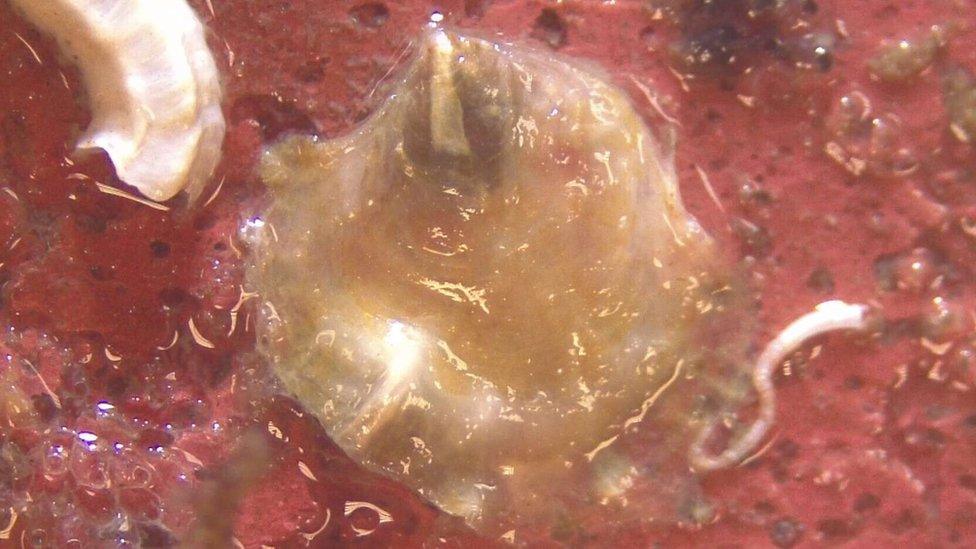Oyster hatchery aims to cut Solent pollution
- Published
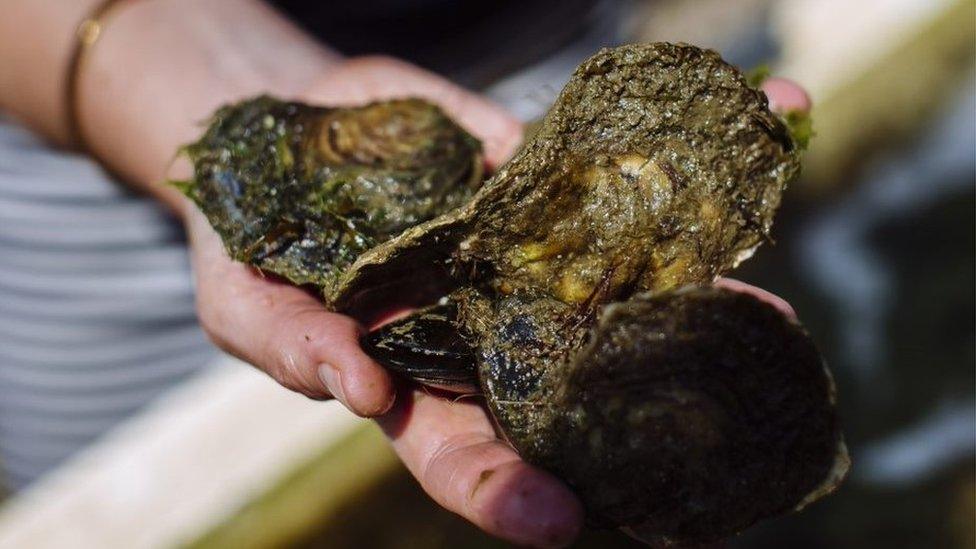
Native oyster populations collapsed as a result of over-extraction, disease and pollution
A hatchery producing millions of native oysters has opened to help reduce pollution off a stretch of coast.
The facility in Langstone Harbour, Hampshire, will hatch a million oysters a year that will repopulate the Solent.
The area's oyster fishery closed in 2013 after populations collapsed as a result of over-extraction, disease, pollution and invasive species.
The scheme is aimed at transforming the strait by improving water quality and increasing marine biodiversity.
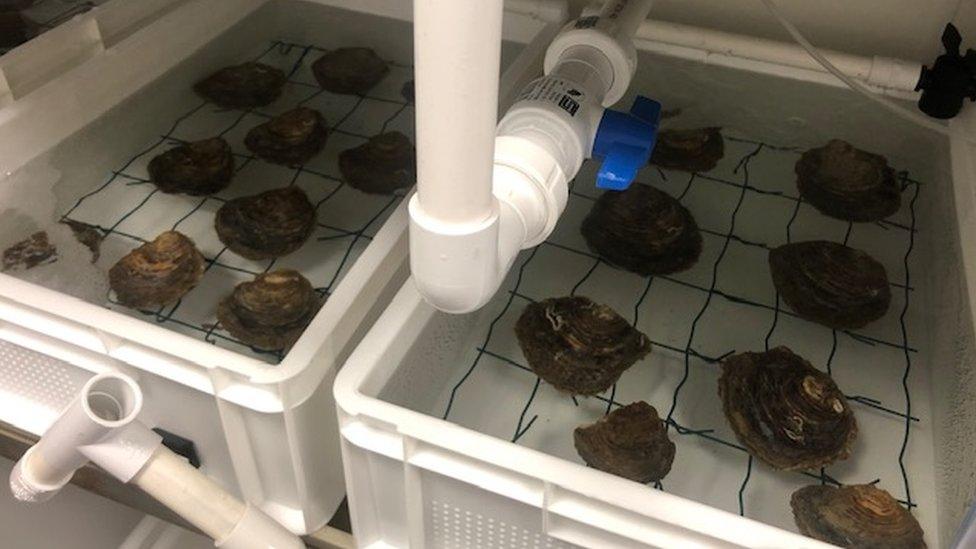
The hatchery will produce a million oysters a year
The juvenile oysters will be released in areas closed to fishing to allow the populations to establish.
The hatchery, provided by the University of Portsmouth and Blue Marine Foundation (BLUE), is part of a project to restore the Solent's oyster fishery, which was once the largest in Europe, and will also allow research into disease resistance and genetic variations.
Dr Joanne Preston, Reader in Marine Ecology and Evolution at the University of Portsmouth, said: "The biggest barrier to restoration of the native oyster, Ostrea edulis, is the lack of oysters, so we need to breed more oysters, but in a way that preserves genetic diversity, harnesses disease resistance, but doesn't spread disease."
- Published15 August 2019
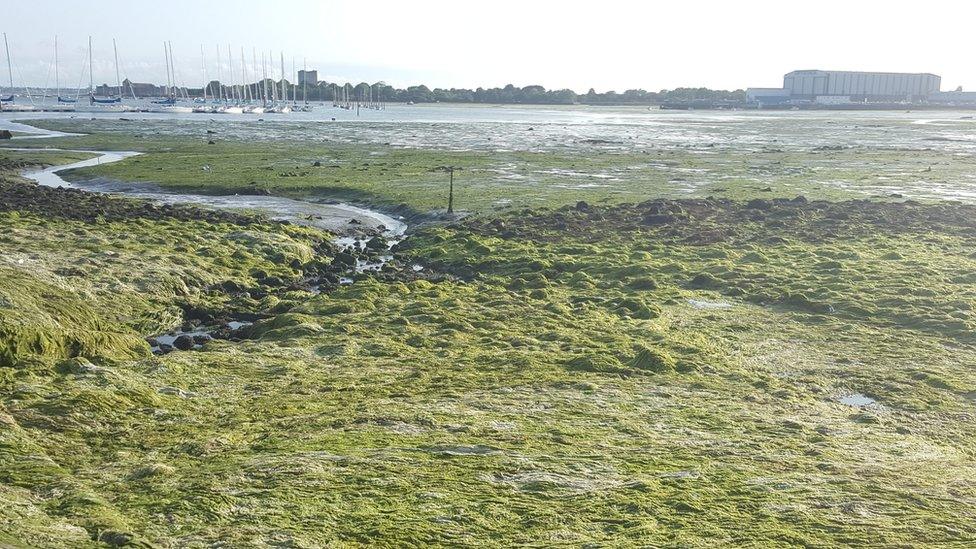
- Published12 January 2019
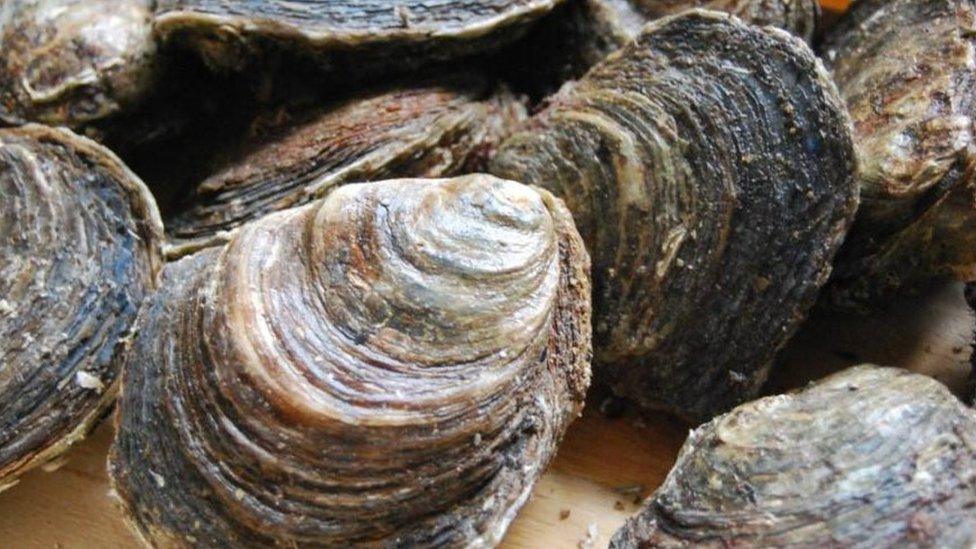
- Published16 March 2018
